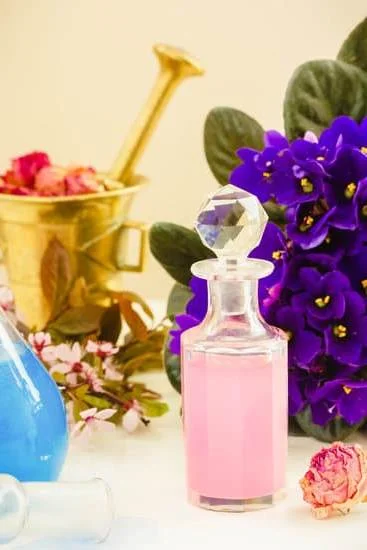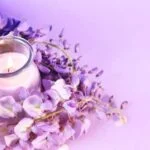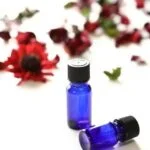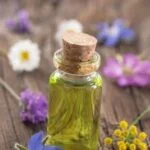Aromatherapy has been used for centuries as a holistic healing treatment, but does aromatherapy relax you? This article delves into the world of aromatherapy to explore its potential benefits for relaxation. Aromatherapy is the use of essential oils derived from plants to improve physical, mental, and emotional well-being. The practice dates back to ancient civilizations and has evolved into a popular form of alternative medicine in modern times.
Aromatherapy can be administered through various methods such as diffusers, inhalation, or massage, and it has been found to have direct effects on the brain and body. Research has suggested that certain essential oils can promote calmness and reduce stress and anxiety. In fact, many individuals have reported personal experiences of feeling more relaxed and at ease after using aromatherapy in their daily routines.
In this article, we will examine the connection between aromatherapy and relaxation by exploring popular essential oils known for their soothing properties. We will also discuss different techniques for using aromatherapy to promote relaxation and address specific relaxation needs such as sleep improvement and stress relief.
Additionally, we will cover important cautions and considerations when using essential oils for relaxation purposes. So let’s delve into the world of aromatherapy to discover its potential to help us unwind and de-stress in our hectic lives.
Understanding Aromatherapy
Aromatherapy is a holistic healing treatment that uses natural plant extracts to promote health and well-being. Essential oils, the key components of aromatherapy, are extracted from flowers, bark, stems, leaves, roots, or other parts of a plant.
These oils can be inhaled or absorbed through the skin, with each oil having its own unique property and benefit. Aromatherapy has been practiced for centuries in various cultures around the world and continues to gain popularity for its potential relaxation and therapeutic benefits.
The use of essential oils in aromatherapy is known to have a positive effect on the limbic system which controls emotions and influences the nervous system. The calming effects of certain essential oils have been supported by scientific research. For example, lavender oil has been found to have sedative effects which can help induce relaxation and improve sleep quality. Additionally, inhalation of chamomile oil has been shown to reduce stress levels and promote relaxation.
Monique Tello, MD, MPH from Harvard Health Publishing states that “the essential oils pass through the nasal passage up into part of the brain called the limbic system – an area deep within the brain that’s thought to play a role in emotions.” This explains how aromatherapy can produce feelings of relaxation and calmness. Whether through diffusers, inhalation, or massage, it is clear that aromatherapy does indeed relax you.
| Benefits | Examples |
|---|---|
| Promotes relaxation | Lavender oil |
| Reduces stress levels | Chamomile oil |
The Connection Between Aromatherapy and Relaxation
Aromatherapy has been used for centuries as a holistic healing treatment, utilizing the natural scents of essential oils to promote relaxation and overall well-being. But how does aromatherapy relax you?
The answer lies in the powerful connection between our sense of smell and the brain’s response to certain scents. Research has shown that inhaling the aroma of certain essential oils can have a calming effect on the mind and body, making aromatherapy an effective tool for managing stress and anxiety.
There are various essential oils that are known for their relaxing properties, including lavender, chamomile, eucalyptus, and peppermint. These oils can be used in different ways such as through diffusion, inhalation, or even massage to help induce relaxation and reduce tension. For example:
- Diffusion: Using an essential oil diffuser to disperse the scent throughout a space
- Inhalation: Adding a few drops of essential oil to a bowl of hot water and inhaling the steam
- Massage: Diluting essential oils with a carrier oil and using them during massage therapy
In addition to these methods, incorporating aromatherapy into daily routines like taking relaxing baths or creating a soothing atmosphere at home can also contribute to relaxation. Many individuals have shared personal experiences and testimonials about how they have found relief from stress, anxiety, and sleep issues through the use of aromatherapy.
With these considerations in mind, it’s important to be mindful of precautions when using essential oils for relaxation. Some people may experience adverse reactions or interactions with medications when using aromatherapy products. It is always recommended to consult with a healthcare professional before starting an aromatherapy regimen to ensure safety and effectiveness. Overall, the connection between aromatherapy and relaxation offers a natural approach to self-care that can benefit both mental and physical well-being.
Popular Essential Oils for Relaxation
Aromatherapy has been used for centuries as a natural way to promote relaxation and overall well-being. Essential oils, which are the foundation of aromatherapy, are highly concentrated plant extracts that can be used in a variety of ways to achieve a calming effect on the mind and body.
One of the most popular essential oils for relaxation is lavender. Lavender oil is known for its soothing scent that can help reduce stress and anxiety. It has been scientifically proven that inhaling lavender essential oil can have a calming effect on the nervous system, making it an excellent choice for promoting relaxation.
Another essential oil often used for relaxation is chamomile. Chamomile oil is well-known for its ability to promote sleep and relaxation. Its gentle, floral aroma has a sedative effect that can help ease feelings of tension and promote restful sleep.
Eucalyptus oil is also widely used to ease tension and improve mood. Its refreshing and invigorating scent can help reduce stress and mental fatigue, making it a great choice for relaxation purposes.
| Essential Oil | Relaxation Benefits |
|---|---|
| Lavender | Reduces stress and anxiety |
| Chamomile | Promotes relaxation and sleep |
| Eucalyptus | Eases tension and improves mood |
Peppermint oil is also known for its ability to refresh and invigorate the mind. While it may not induce direct relaxation like lavender or chamomile, its cooling properties can still help create an atmosphere conducive to unwinding and de-stressing.
Overall, the use of these popular essential oils in aromatherapy provides individuals with a natural way to relax their minds and bodies amidst the stresses of daily life. Whether applied through diffusion, massage, or topical application, these essential oils offer a holistic approach to achieving relaxation on a physical, emotional, and mental level.
Techniques for Using Aromatherapy for Relaxation
Aromatherapy is a popular holistic healing treatment that uses natural plant extracts to promote health and well-being. While essential oils are commonly used for massages and diffusers, they can also be incorporated into baths and shower steam for relaxation.
Creating a Relaxing Atmosphere With Essential Oils
One way to use aromatherapy for relaxation is by creating a calming atmosphere at home. This can be achieved by using essential oil diffusers, which release the aroma of the oils into the air, filling the room with a pleasant scent. Popular essential oils for relaxation include lavender, chamomile, and eucalyptus. Simply adding a few drops of these oils to a diffuser can create a soothing environment that promotes relaxation.
Aromatherapy Massage for Stress Relief
Another popular technique for using aromatherapy for relaxation is through massage. Aromatherapy massages involve the use of essential oils mixed with carrier oils, which are then applied to the skin through gentle massage techniques. This not only helps in promoting physical relaxation but also aids in reducing stress and anxiety due to the calming effects of the essential oils.
Aromatherapy Baths and Shower Steam for Relaxation
Taking a warm bath or shower can be enhanced by incorporating aromatherapy for relaxation. Adding a few drops of essential oil to bathwater or using an infused shower steamer can help create a spa-like experience at home. The steam from the water releases the aroma of the essential oil, providing both physical and mental relaxation after a long day.
In summary, aromatherapy offers multiple techniques for achieving relaxation, including creating calming atmospheres with diffusers, using essential oils during massages, and enhancing baths or showers with aromatic blends. These techniques not only have physical benefits but also contribute to reduced stress levels and overall well-being.
Aromatherapy for Specific Relaxation Needs
Using aromatherapy to fulfill specific relaxation needs is a popular practice among individuals seeking natural remedies for various issues. From promoting better sleep to relieving headaches and calming nerves, aromatherapy offers a range of benefits for specific relaxation requirements.
Below are some techniques for using aromatherapy to address specific relaxation needs:
- Using aromatherapy to promote better sleep: Many essential oils, such as lavender and chamomile, are known for their calming properties that can help with insomnia and promote a restful night’s sleep. Diffusing these oils in the bedroom or adding a few drops to a pillow can create a relaxing atmosphere conducive to sleep.
- Relieving headaches and migraines with essential oils: Peppermint oil has been shown to have analgesic properties that can help alleviate headache pain. Aromatherapy massage with diluted peppermint oil or inhaling the aroma through steam inhalation may provide relief from headaches and migraines.
- Aromatherapy for calming nerves before public speaking or important events: Inhaling the aroma of certain essential oils, such as bergamot or ylang-ylang, can help reduce feelings of nervousness and anxiety before facing stressful situations. A few drops on a tissue or using an aromatherapy inhaler can be effective methods for calming nerves.
When using aromatherapy for specific relaxation needs, it is important to consider individual sensitivities and preferences when selecting essential oils and application methods. Additionally, consulting with a healthcare professional is recommended, especially when using aromatherapy in conjunction with existing medications or treatments.
By incorporating aromatherapy into daily routines, individuals can optimize their relaxation experience and improve overall well-being. Whether it’s better sleep, headache relief, or managing stress in challenging situations, aromatherapy offers unique solutions tailored to specific relaxation needs.
Cautions and Considerations
Precautions for Using Essential Oils for Relaxation
While aromatherapy can offer relaxation benefits, it is important to use essential oils with caution. Some essential oils can cause skin irritation or allergic reactions, especially when applied directly to the skin. It is crucial to dilute essential oils with a carrier oil before applying them to the skin.
Additionally, certain essential oils should not be used by pregnant women or individuals with certain medical conditions. It is important to thoroughly research and understand the potential risks and precautions associated with each essential oil before using them for relaxation purposes.
Potential Side Effects and Interactions With Medications
It is important to be aware of potential side effects and interactions that may occur when using essential oils for relaxation. Some essential oils may interact with certain medications, either reducing their effectiveness or causing adverse reactions.
For example, citrus essential oils like bergamot or lemon can make the skin more sensitive to sunlight, which may lead to sunburn in some individuals. It is crucial for individuals taking medication or undergoing medical treatment to consult with a healthcare professional before incorporating aromatherapy into their relaxation routine.
Consulting a Healthcare Professional Before Starting an Aromatherapy Regimen
Before beginning an aromatherapy regimen for relaxation, it is advisable to seek guidance from a healthcare professional. This is especially important for individuals with pre-existing health conditions or those taking medication.
A healthcare provider can offer personalized advice on which essential oils are safe to use and how they can be integrated into a relaxation routine without causing any adverse effects. Consulting a healthcare professional ensures that individuals can safely enjoy the relaxing benefits of aromatherapy without compromising their overall well-being.
Conclusion
In conclusion, the question “Does aromatherapy relax you?” can be confidently answered with a resounding yes. Aromatherapy has been used for centuries as a natural way to promote relaxation, reduce stress, and improve overall well-being. The use of essential oils through methods such as diffusers, inhalation, and massage has been shown to have calming effects on the brain and body, making it an effective tool for relaxation.
The research on the calming effects of certain essential oils such as lavender, chamomile, eucalyptus, and peppermint is supported by personal experiences and testimonials from individuals who have used aromatherapy for relaxation. From creating a relaxing atmosphere with essential oils to using aromatherapy techniques for specific relaxation needs like promoting better sleep or relieving headaches, there are various ways in which aromatherapy can be incorporated into a self-care routine for relaxation.
It is important to note that while aromatherapy can offer numerous benefits for relaxation, caution and consideration should be taken when using essential oils. It is recommended to consult a healthcare professional before starting an aromatherapy regimen in order to address any potential side effects or interactions with medications. Overall, exploring aromatherapy as a tool for relaxation can be a valuable addition to one’s self-care practices and contribute to overall well-being.
Frequently Asked Questions
How Does Aromatherapy Calm You?
Aromatherapy has calming effects through the use of essential oils that can positively influence the limbic system, which controls emotions and memory. The scents can help reduce stress and promote relaxation, leading to a sense of calmness.
Does Aromatherapy Stress Relief Really Work?
Aromatherapy for stress relief has been found to be effective for many people. The use of soothing essential oils like lavender, chamomile, and bergamot can help lower stress levels, improve mood, and promote relaxation when used consistently.
Can Aromatherapy Be Used for Anxiety?
Aromatherapy can be used as a complementary approach to manage anxiety. Certain essential oils such as lavender, rose, and frankincense have calming properties that can help alleviate feelings of anxiety when inhaled or applied topically.
However, it is important to note that aromatherapy should not replace professional treatment for anxiety disorders but can be used in conjunction with other therapeutic approaches.

Are you looking for a natural way to improve your health and wellbeing?
If so, aromatherapy may be the answer for you.





